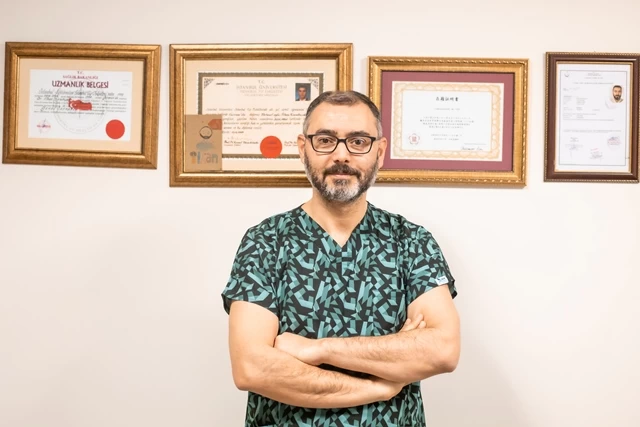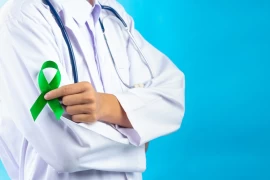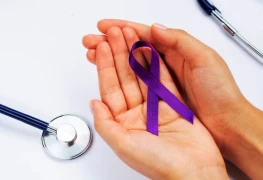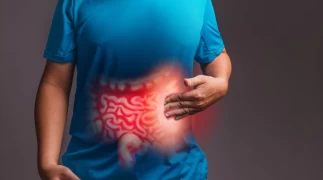
Why İs The Diagnosis Of Stomach Cancer Delayed?
- Why İs The Diagnosis Of Stomach Cancer Delayed?
- What are the factors that contribute to stomach cancer?
- What are the symptoms of stomach cancer?
- How is stomach cancer diagnosed?
- What is the treatment protocol for stomach cancer?
Stomach cancer is a type of cancer that occurs in the tissues of the stomach. It is among the most commonly seen cancer types worldwide. Stomach cancer often does not show symptoms in the early stages and is only detected at advanced stages. Therefore, early diagnosis and treatment are of great importance, especially in stomach cancer.
What are the factors that contribute to stomach cancer?
The factors that contribute to the development of stomach cancer include the following:
- H. pylori infection: Helicobacter pylori (H. pylori), a bacterium, can cause inflammation in the stomach and increase the risk of stomach cancer. H. pylori infection is one of the most common causes of stomach cancer worldwide.
- Chronic stomach inflammation: Prolonged inflammation in the stomach can increase the risk of stomach cancer. Conditions such as chronic atrophic gastritis, pernicious anemia, stomach ulcers, or Barrett's esophagus can contribute to inflammation and the development of cancer in the stomach.
- Smoking: Smoking is a significant factor that increases the risk of stomach cancer. Cigarette smoke contains carcinogenic substances and can cause damage to the stomach tissue.
- Dietary habits: Certain dietary habits can also affect the risk of stomach cancer. For example, excessive consumption of salty, smoked, processed, and canned foods can increase the risk of stomach cancer. Additionally, a deficiency in vegetables and fruits, inadequate fiber intake, and high consumption of red meat are also risk factors.
- Genetic predisposition: Individuals with a family history of stomach cancer may be at a higher risk due to genetic predisposition. Certain inherited syndromes can increase the risk of stomach cancer.
- Previous stomach surgeries: The risk of stomach cancer may increase in individuals who have undergone previous stomach surgery.
- Age and gender: Stomach cancer is more commonly seen in elderly adults. It is more prevalent in males compared to females.
- Other factors: Certain conditions that weaken the immune system (e.g., HIV infection) can increase the risk of stomach cancer. Additionally, chronic alcohol consumption, exposure to certain chemicals, and prolonged exposure to radiation can also increase the risk of stomach cancer.
These factors can influence an individual's risk of developing stomach cancer. However, having risk factors does not necessarily mean that one will develop stomach cancer. It should also be noted that some cases of stomach cancer may occur without known risk factors. The best approach is to make healthy lifestyle choices, undergo regular health check-ups, and take measures to minimize risk factors.
What are the symptoms of stomach cancer?
The symptoms of stomach cancer can vary depending on the stage and spread of the disease. In the early stages, stomach cancer often does not show symptoms and is usually diagnosed incidentally. However, the following symptoms may appear in the advanced stages:
- Dyspepsia: Also known as indigestion, it is an early symptom of stomach cancer. Symptoms of dyspepsia may include abdominal pain, bloating, indigestion, heartburn, and early satiety.
- Stomach pain: Stomach cancer can cause pain in the stomach region. This pain usually occurs continuously or chronically and cannot be relieved by other treatment methods.
- Nausea and vomiting: Individuals with stomach cancer may experience recurrent nausea and vomiting. These symptoms often occur after meals.
- Loss of appetite and weight loss: Loss of appetite and weight loss are common symptoms in individuals with stomach cancer. The person cannot maintain their normal eating habits, and weight loss becomes noticeable.
- Difficulty swallowing: As stomach cancer grows, the passage of food from the stomach to the intestines can become difficult. This can result in difficulty swallowing, and the person may struggle with the passage of food through the esophagus.
- Bleeding: Stomach cancer can sometimes be associated with bleeding. Symptoms such as bloody stools (black, tarry stools) or bloody vomiting may occur. In such cases, urgent medical intervention may be required.
- Fatigue and weakness: As stomach cancer progresses, anemia can develop. This can cause symptoms such as fatigue, weakness, and pale skin.
The symptoms mentioned above are possible symptoms of stomach cancer. However, it should be noted that these symptoms can also be associated with other health problems. If any of these symptoms persist for a prolonged period or are concerning, it is important to consult a healthcare professional. Early diagnosis and treatment can provide a better prognosis for stomach cancer.

How is stomach cancer diagnosed?
A series of tests can be conducted for the diagnosis of stomach cancer. Initially, the patient's medical history is taken, and a physical examination is performed. Subsequently, blood tests, endoscopy, biopsy, and imaging tests are conducted. Tests such as computerized tomography (CT) serve as guidance in determining the spread and stage of the cancer.
What is the treatment protocol for stomach cancer?
The treatment protocol for stomach cancer can vary depending on the stage of the disease, the spread of the tumor, and the overall health condition of the patient. Generally, a multidisciplinary approach is adopted, and the treatment plan is determined collaboratively by a surgeon, medical oncologist, and radiation oncologist. The main treatment options include:
- Surgery: In early-stage stomach cancer, surgical intervention is preferred to remove the tumor along with surrounding tissues. A procedure called gastrectomy may involve the complete or partial removal of the stomach. Additionally, nearby lymph nodes may be removed. Surgery is typically performed when the cancer has limited spread and the patient is in good general health.
- Chemotherapy: Chemotherapy is a treatment using drugs to destroy cancer cells or inhibit their growth. Chemotherapy can be used as neoadjuvant (before surgery), adjuvant (after surgery), or palliative treatment for advanced-stage stomach cancer. Multiple drugs may be used in combination.
- Radiation therapy: Radiation therapy is a treatment method that targets cancer cells using high-energy radiation. In the treatment of stomach cancer, radiation therapy can be used as neoadjuvant or adjuvant therapy. Palliative radiation therapy may also be applied to alleviate symptoms.
- Targeted therapies: In certain types of stomach cancer, specific drugs that target the growth of cancer cells can be used. These include tyrosine kinase inhibitors and immunotherapy. Targeted therapies are generally used in advanced-stage or metastatic stomach cancer.
- Supportive care: Supportive therapies are also employed in the treatment of stomach cancer to manage side effects and improve the patient's quality of life. These treatments may include nutritional support, pain control, anti-emetic medications, and psychosocial support.
The treatment protocol for stomach cancer is personalized according to the individual's specific circumstances. A treatment plan is formulated by considering the patient's overall health, the stage and spread of the cancer, the location of the tumor, and other factors. The goals of treatment are to control the cancer, shrink or eliminate the tumor, alleviate symptoms, and improve the patient's quality of life. Therefore, the treatment plan is determined through the collective decision of a multidisciplinary team, and regular monitoring of the patient is ensured.
Early diagnosis is crucial in the treatment of stomach cancer. Therefore, individuals with risk factors are advised to undergo regular health check-ups. Additionally, adopting a healthy lifestyle, engaging in regular exercise, practicing a healthy diet, and avoiding harmful habits such as smoking can help reduce the risk of cancer.
In conclusion, stomach cancer is a type of cancer that originates in the stomach tissue, and early diagnosis is of great importance. Knowing the risk factors, monitoring symptoms, and attending regular health check-ups are essential for early diagnosis and treatment of stomach cancer.






